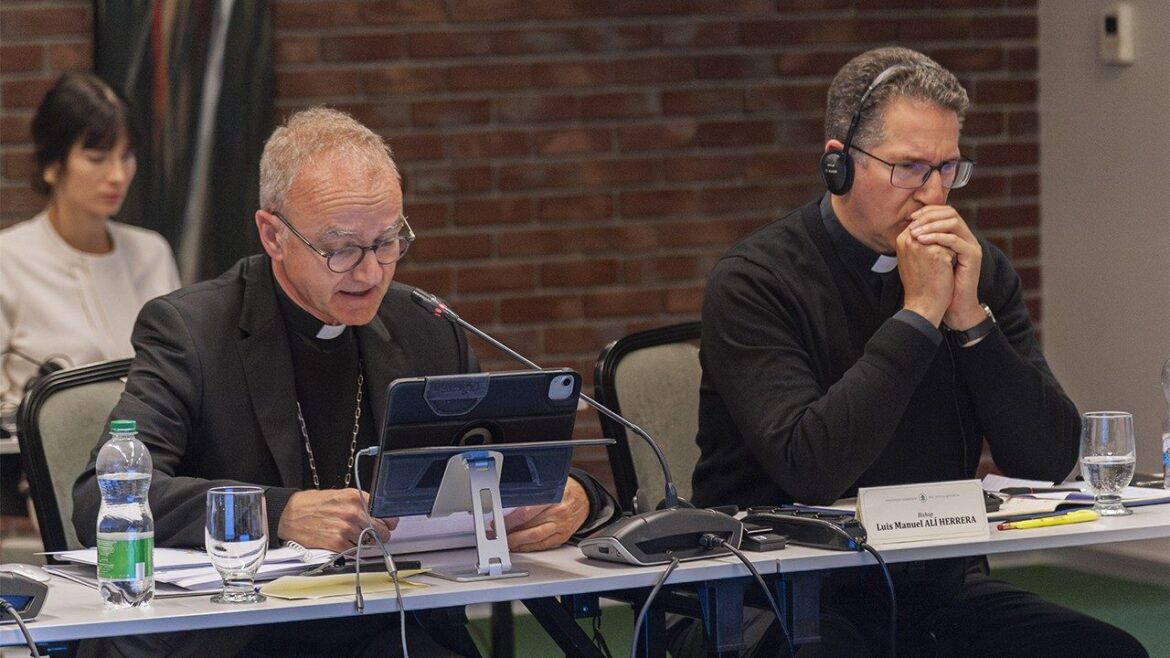The Pontifical Commission for the Protection of Minors concludes its Autumn Plenary Assembly held in Krakow, Poland.
By Vatican News
The Pontifical Commission for the Protection of Minors concluded its Autumn Plenary Assembly in Krakow on Friday, marking five days of dialogue, strategic planning, and reflection focused on advancing safeguarding within the Church.
Held from 29 September to 3 October, the gathering brought together Commission members, experts, and regional representatives to advance the body’s mandate as outlined in Praedicate Evangelium. This was the first Plenary Assembly held under the leadership of Archbishop Thibault Verny, appointed President earlier this year.
First Assembly under new presidency
In his inaugural address, Archbishop Verny called for a renewed commitment to safeguarding as integral to the Church’s identity and mission. He outlined four strategic aims: fostering a universal safeguarding culture, developing a shared language through the Universal Guidelines Framework (UGF), strengthening regional networks through the Annual Report, and deepening dialogue with civil institutions.
Acknowledging both progress made and systemic gaps that persist, Archbishop Verny highlighted listening to victims and survivors, promoting transparency, and building accountable structures. He encouraged Commission members to act “with courage and compassion,” noting the urgency of unresolved safeguarding challenges and the global expectation for moral clarity and pastoral care from the Church.
Universal Guidelines Framework in final draft
A major focus of the Plenary was the Universal Guidelines Framework, which has been tested over the past year in pilot projects across four continents — in Zimbabwe, Tonga, Poland, and Costa Rica — and enriched by a synodal listening process.
Members reviewed the final draft of the Framework, which incorporates theological and canonical insights. The text will now be submitted to the Commission President for dialogue with relevant Dicasteries of the Roman Curia before being presented to the Holy Father.
Victim-Survivor engagement
The Commission reaffirmed its commitment to centring the voices of victims and survivors through enhanced protocols and formation in outreach. Discussions focused on “Conversional Justice,” a framework emphasising truth, justice, reparations, and institutional reform as essential elements of healing.
Victims and survivors continue to play a key role in shaping the Commission’s work, particularly in the upcoming Second Annual Report, which highlights their contributions and perspectives.
Second Annual Report to focus on reparations
The Commission’s Second Annual Report on Church Policies and Procedures for Safeguarding (Reporting Year: 2024) will be released on 16 October in five languages. Continuing its exploration of Conversional Justice, the report focuses on reparations and introduces new external data sources to support transparency and accountability.
The Plenary also reviewed the Instrumentum Laboris for the Third Annual Report (Reporting Year: 2025), which will enter a synodal phase of dialogue and further data collection.
Building safeguarding capacity through the ‘Memorare Initiative’
Members assessed progress on the Memorare Initiative, which aims to strengthen local safeguarding capacity and is closely aligned with both the UGF and Annual Report.
Seventeen active projects are underway across the Americas (10), Africa (6), and Asia (1), contributing to a global ecosystem of safeguarding.
Collaboration with the Polish Bishops’ Conference
The Assembly concluded with a meeting with members of the Polish Bishops’ Conference, reinforcing the Commission’s commitment to accompany local Churches in their safeguarding efforts.
Reflecting on the decision to hold the Plenary in Poland, Archbishop Verny highlighted the importance of listening to victims and survivors and engaging local communities:
“It is about listening, walking humbly with victims. It is through and by the victims/survivors that we journey and discern. The Church is not separate from society—it walks with society; it is embedded in society. This culture of safeguarding must be lived in dialogue with society, learning from it in terms of foresight and protection.”
Archbishop Verny also stressed the importance of mutual learning across regions, noting that safeguarding advances in some parts of the Global South provides valuable lessons for other contexts:
“We must not assume that we are safe from the risk of further abuse happening because we have published policies and set up offices. Safeguarding complacency, safeguarding fatigue is setting in, and this is a major risk factor in bad decisions being made. We must continue to learn from one another and never oppose one another. Subsidiarity and fraternal collaboration with episcopal conferences and religious congregations are key.”

